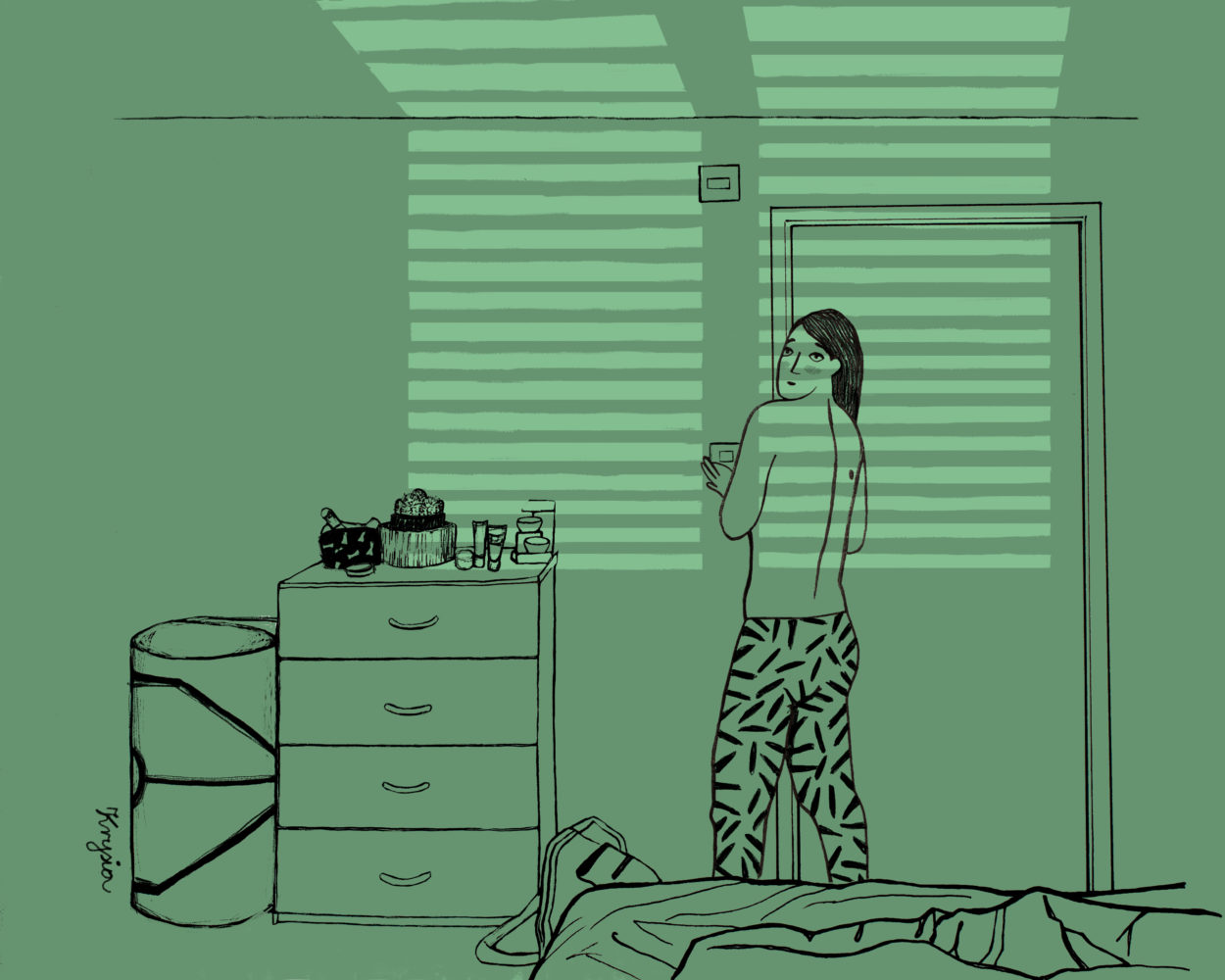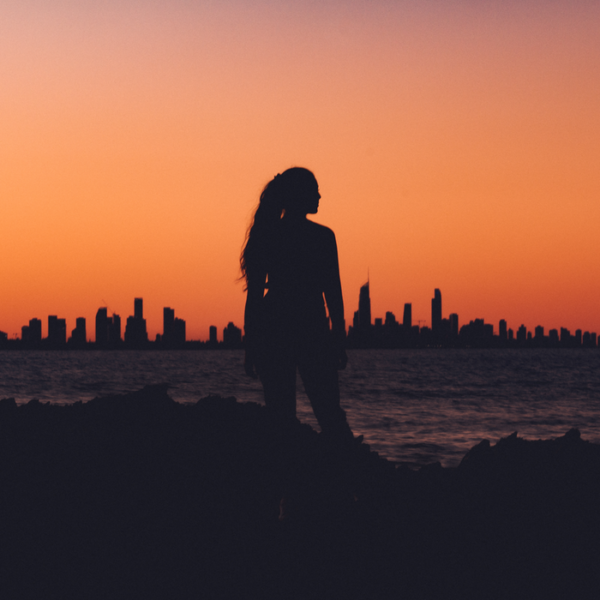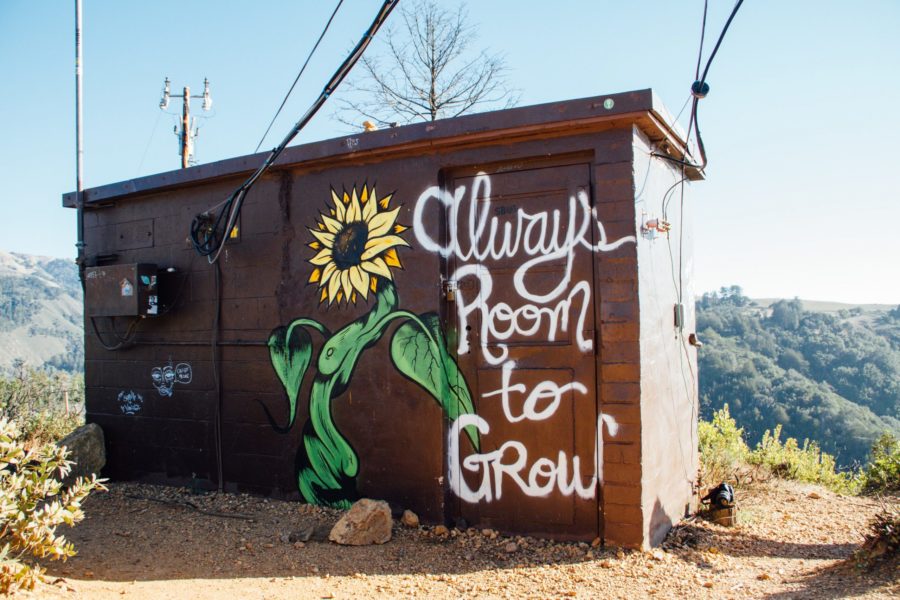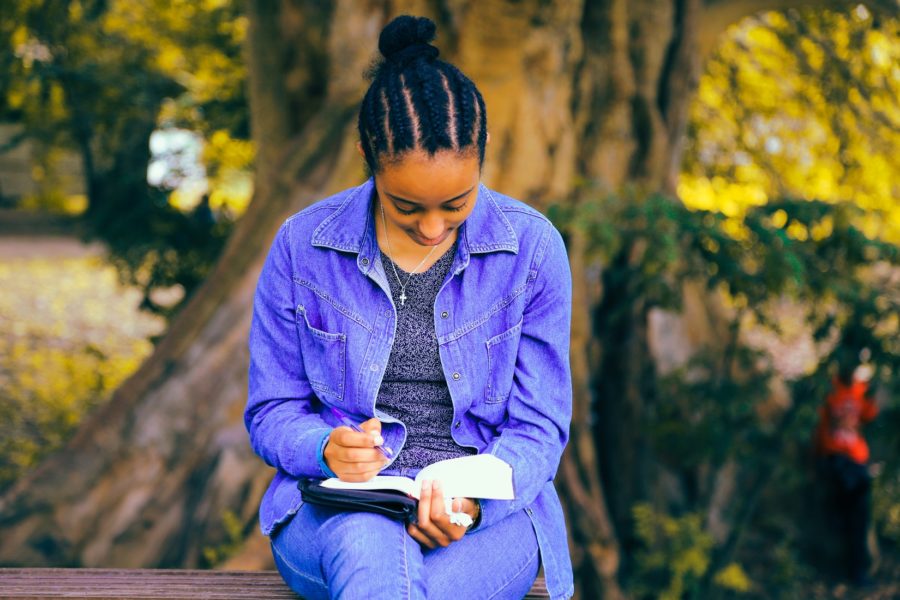The discomfort has been omnipresent; on a global, national, societal and personal level, COVID-19 has interrupted every area of our lives. There are many factors that can affect our vulnerability to the virus, like income, age, profession, homelife etc – factors which should be arbitrary but unfortunately are not.

How often do I truly leave my comfort zone?

Questions Without Answers
Each month, Olivia Scher chooses a personal question to ask herself, discussing her ideas, thoughts and feelings about life and the world around us. In exploring a range of topics she dares herself to be brutally honest in the pursuit of insight acquired through questions without answers.
2020 has been an uncomfortable year.
The discomfort has been omnipresent; on a global, national, societal and personal level, COVID-19 has interrupted every area of our lives. There are many factors that can affect our vulnerability to the virus, like income, age, profession, homelife etc – factors which should be arbitrary but unfortunately are not. Ultimately though, the underlying requirement of vulnerability is simply to be human, and as such we have all endured discomfort this year. However, this discomfort has been forced upon us. We have had no choice other than to lockdown our lives as they were in March and follow stringent rules as to socialising and wearing masks, whilst hoping that it all makes a difference. It has been easy to feel that we have lost ownership of our comfort zones. During this highly restricted period I have been reflecting on the times when we deliberately choose discomfort, and how life actually has a funny way of rewarding us when we do so.
As a young financially supported student I have every opportunity to confidently step out of my comfort zone. I am only responsible for myself; I have no significant financial obligations and I don’t have a job. I am committed to studying, however, this is a personal choice – nobody forces me to be anywhere, and realistically, as long as I do the minimum required, I can choose how much I really engage. As my dad never ceases to tell me – I am probably as free as I will ever be. And yet somehow, I often feel purposeless. Sometimes I struggle with having enough energy to do what I love. More often though, I have the energy to do something yet struggle to know what I want to do. Perhaps this is not complicated, and I should expect to be bored when I haven’t consistently applied myself or tried anything new. With the instant gratification of entertainment and socialising available 24/7 at the end of my fingertips, my expectations become skewed; I am tempted to stay indoors and live vicariously through screens and on addictive social media platforms, as opposed to stepping outside and actually taking a risk. I am left feeling unfulfilled and craving results that I haven’t actually earned.
During the most difficult periods in life we need safety and stability. We need our safe spaces to be as safe as they can be before we choose to step out of them. At such times in my life it was very hard to take this onboard in a meaningful way. I can’t count the number of times I have been told my discomfort was all part of a ‘necessary growing experience’ and that I should welcome the pain and take some risks. I felt misunderstood and offended. However, I do know that if we project this need for security onto our emotional lives when things are going well for us, then we risk living a life with less passion; we abandon our emotional vulnerability in order to stay safe within our comfort zones and therefore sacrifice our capacity to grow. Though it is essential to be comfortable in order to be vulnerable, and essential to be vulnerable in order to grow, this can easily develop into a default position where there is an imbalance towards being risk averse when there is no real danger – the illusion of comfort ultimately does not serve me well.
It has taken me a while to realise that I cannot help how I feel, but I can only choose how I respond. My emotions are inevitable and unavoidable and knowing this has freed me to apply myself instead to choosing my responses. And as I noticed more often that fear of difficult emotions could inhibit me from leaving my comfort zone – though I may have felt ‘safer’ in the immediate short term – too much comfort eventually becomes highly uncomfortable. Too much comfort can leave us unmoved by life. It can render us unable to change our world for the better; it can keep us small and set limits to our horizons.
As the lockdown eases and I return to an uncertain version of life, I am left wondering how we will grow from this universally experienced period of discomfort; what will we learn? What will it look like to recover and take meaningful risks again? – as individuals? – as a society? – when we return to a more secure and stable period, how will our horizons have been expanded?
As tempting as it is to curl up and wait for life to return to normal, it is also clear to me that I should make that difficult choice when I can and choose discomfort in order to grow. So, when I ask myself ‘how often do I truly leave my comfort zone?’, the answer today is not often enough.
Olivia Scher, Columnist
Header image by Krystyna Walter, titled, ‘My body craving for a sunshine’. Insta: swiatlo.rozproszone






Leave a Comment